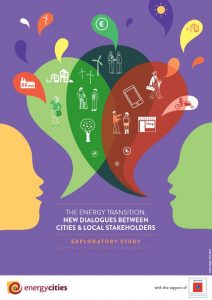Generally, partnerships are a wonderful opportunity to drive change: the pooling of skills, knowhow, human and financial resources as well as the multi-sectoral dimension of the different approaches are examples of their many benefits.
The Bristol Green Capital Partnership (BGCP) is a real success story. Launched in 2007 by the city council, its ambition is to gather motivated local stakeholders eager to work together to transform and develop Bristol into a green city. The partnership now has over 700 members from the public, private, associative and academic sectors, who share experience, resolve problems and support projects. In eight years, a vast network has been created and many projects have received support via the £150,000 “Community Challenge” fund and by sharing best practice and expertise. The partnership also supported the application of the city of Bristol to the “European Green Capital” award and has taken part in educational activities with the organisation of the “Big Green Week”, the publication of videos on YouTube, the organisation of lectures and the creation of a “Green zone” at the “Bristol Harbour Festival”.
This success in creating a sustainable and attractive momentum for change is due to a number of main factors.
Governance has been a strong point of the partnership, which has adapted it to its members. At the beginning, the small number of members made it possible to develop an efficient, non-representative or democratic decision-making process, giving the opportunity to the most motivated to move the partnership forward. As the members became more numerous, the partnership adapted to the need for more democratic and representative structures. It, however, kept its original efficiency thanks to its theme-based working groups.
Without the city council, its instigator, the partnership would have never come into being. The city council not only mobilised a group of motivated people, it also instilled its vision in the partnership. For eight years, its financial and administrative support proved essential: funding of the coordinator position, administrative support for the “sustainable city” team, subsidies for logistics, funding for a small grants programme, the “Community Challenge” fund, etc. As of the end of 2015, the partnership has become a “Community Interest Company” and will have to explore new business models in order to become fully independent. It can still however count on the expertise of its members and on partners who are ready to share their resources as a quid pro quo for BGCP visibility and legitimacy.

